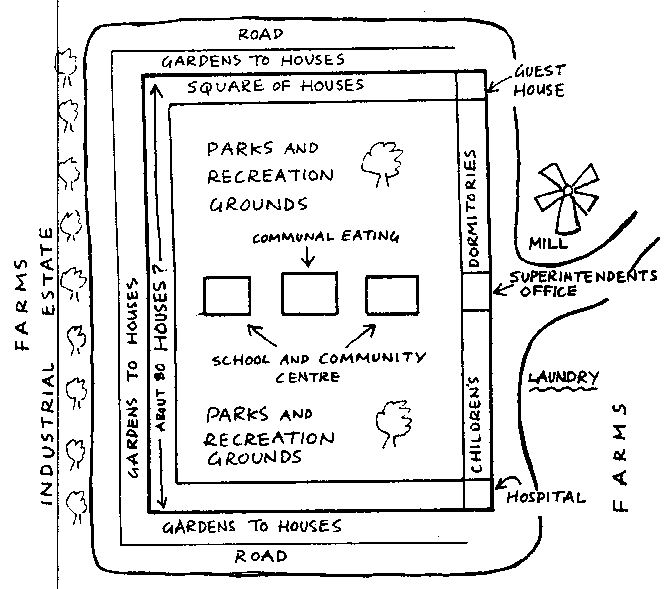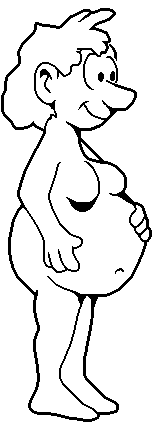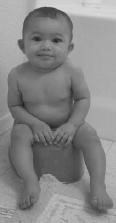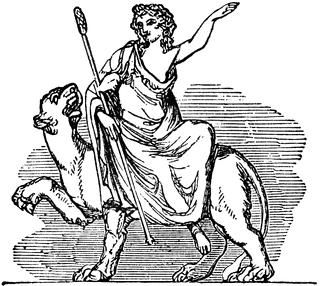Simone De Beauvoir's sociology in historical context
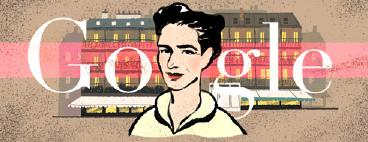
|
A historical guide to thinking sociologically
From Owen and Engels to Judith Butler. |
1949: In Le deuxième sexe (second sex), Simone De Beauvoir discussed the social theory of human identity at the time, with special reference to what it is to be a "woman"
She focuses on the power of marxism and psychoanalysis to explain the issues, on the implications of these two perspectives, and on their deficiencies
|
De Deauvoir drew on early
work of the psychoanalalyst Jacques
Lacan (1901-1981) about the formation of a
"mirror image" of self. In a mirror you meet yourself as an other person might see you. |
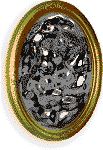
|
Determination and self-determination
De Beauvoir says:
Biology, psychology (psychoanalysis), economics (marxism) on their own
are inadequate to explain identity.
Two other dimensions are necessary:
De Beauvoir's
existential perspective is one:
Developing De Beauvoir
De Beauvoir's critique of sociology at mid-century has
been developed in the later part of the century by
Shulamith
Firestone and
Judith Butler.
"No biological, psychological, or economic fate
determines the
figure that the human female presents in society; it is civilisation as a
whole that produces this creature, intermediate between male and
eunuch,
which is described as feminine."
See
extracts from Erving Goffman on The Presentation of Self in
Everyday
Life (1959)
See quotes from Talcott
Parsons on "The superego and the theory of social systems"
(1952)
in which a human being grasps
(understands, takes hold of) issues in the total perspective of his or
her existence.
| 19th century socialist feminism |
|
De Beauvoir
relates socialism (communism) and feminism, so we will begin by
looking at he early history of socialist feminism:
Friederich Engels Principles of Communism 1847: What will be the influence of communist society on the family? "It will transform the relations between the sexes into a purely private matter which concerns only the persons involved and into which society has no occasion to intervene." |

|
Society intervenes in relations between the sexes through the institution of marriage. In Engels' day marriage involved a woman giving up many freedoms that she retains today.
Engels continues:
Socialism and women's emancipation through collective education
"It can do this since it does away with private
property and
educates children on a communal basis, and in this way
removes
the two bases of
traditional marriage, the dependence rooted in private
property, of the woman on the man and of the children on the
parents."
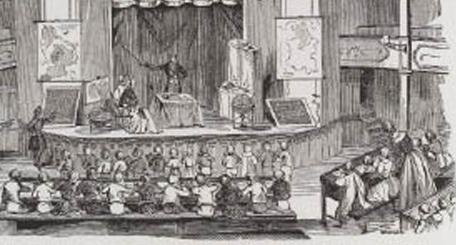
|
The picture shows the South London Rational School meeting in the Large Theatre of the Rotunda in the 1840s (source) |
We will understand more about the way communal education, alongside the abolition of child labour, were to liberate women and children when we consider Owenism and socialist feminism, and consider the work of children and women in the coal mines.
However, Engels draws our attention to a scandalous attack on socialists (communists) that suggests their object is group sex:
"And here is the answer to the outcry of the highly moral philistines against the "community of women".
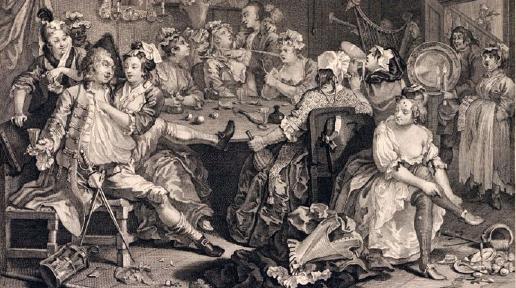
The third stage of a Rake's progress
"Community of women is a condition which belongs entirely to bourgeois society and which today finds its complete expression in prostitution. But prostitution is based on private property and falls with it."
"Thus communist society, instead of introducing community of women, in fact abolishes it."
Owenism
[In speaking of communal provision Engels draws on
Owenite theory.
Owen envisaged the un-
employed being provided with employment in villages of co-operation which
would be laid out in the manner suggested by the following diagram:
One advantage that the socialists perceived in communal facilities for
eating, cleaning, child-care, education, entertainment and production was
that it could free women from dependence on men and allow inter-personal
relations being self-determining.
See the
community plan illustrating
Owen's 1817 proposal
| Children |
Marx and Engels The Communist Manifesto 1848
"The bourgeois claptrap about the family and education, about the hallowed co-relation of parent and child, becomes all the more disgusting, the more, by the action of modern industry, all family ties among the proletarians are torn asunder and their children transformed into simple articles of commerce and instruments of labour.
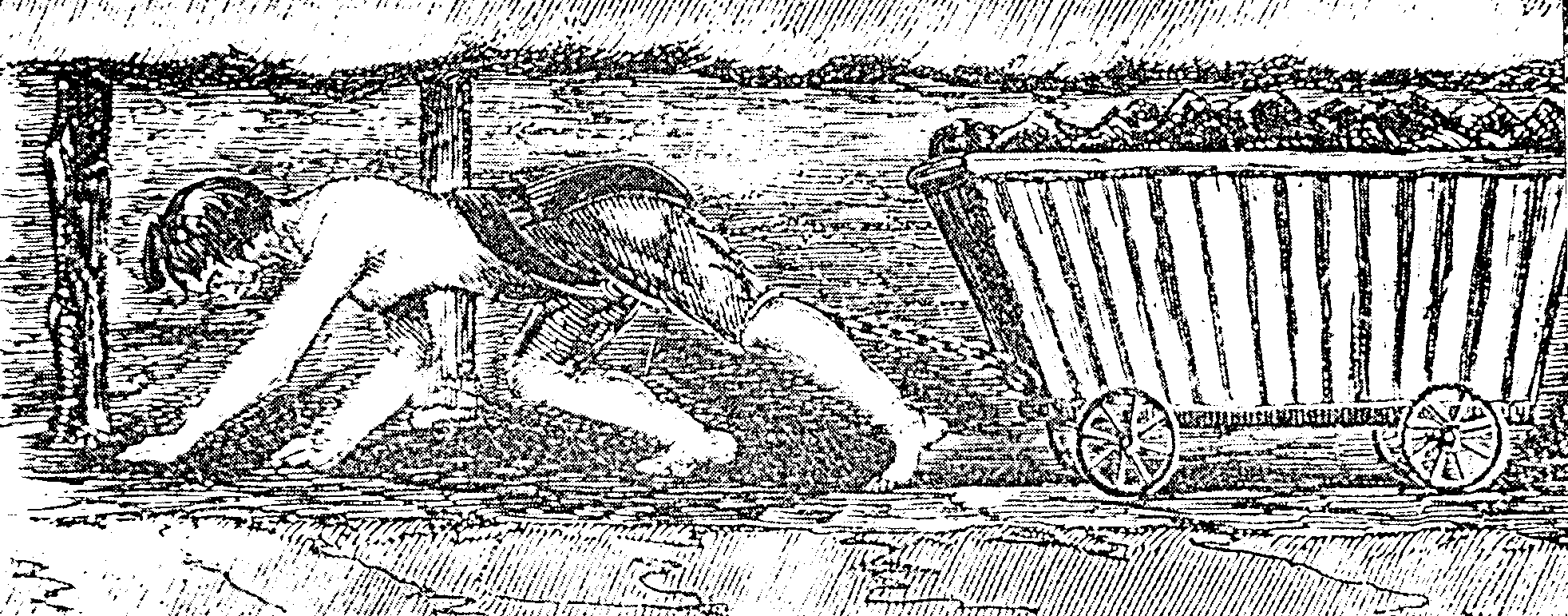
|
"The bourgeois sees in his wife a mere instrument of production. He hears that the instruments of production are to be exploited in common, and, naturally, can come to no other conclusion than that the lot of being common to all will likewise fall to the women.
"He has not even a suspicion that the real point aimed at is to do away with the status of women as mere instruments of production.

|
If you want to know more, read Barbara Taylor's
1983
Eve and the New Jerusalem. Socialism and feminism in the nineteenth century |
1917: Communist Revolution in Russia
1949: De Beauvoir
A world where men and women would be equal is easy to visualize, for that precisely is what the Soviet Revolution promised: women raised and trained exactly like men were to work under the same conditions and for the same wages.
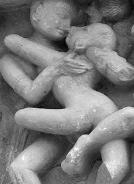
|
|
But is it enough to change laws, institutions, customs, public
opinion, and the whole social context, for men and women to become truly
equal?
...
We must not believe, certainly, that a change in woman's economic
condition alone is enough to transform her, though this factor has been and
remains the basic factor in her evolution; but until it has brought about
the moral, social, cultural, and other consequences that it promises and
requires, the
new woman cannot appear.
At this moment they have been
realized nowhere, in Russia no more than in France or the United States;
and this explains why the woman of today is torn between the past and the
future.
...
But if we imagine ... a society in which the equality of the sexes would be
concretely realized, this equality would find new expression in each
individual.
| Sigmund Freud 1856-1939 |
|
Freud maintains that
"Sexual life does not begin only at puberty, but starts with plain manifestations soon after birth." (Freud 1938 par.3.2).

|
But childhood sexuality is not like adult sexuality.
It is not about desiring intercourse. [The picture is of a carving from a Hindu temple Khajuraho, Madhya Pradesh (Between 950 and 1150AD) It is about desire. |
Oral (mouth) and anal (bottom) phases of childhood sexuality
"because satisfaction is then sought in aggression and in the excretory function." (Freud 1938 par.3.5).
|
Phallic phase of childhood sexuality
The third phase is the phallic phase A phallus is an image of an erect penis that used to be carried in solemn procession in the Dionysian festivals in ancient Greece. The phallic phase of childhood sexuality is pre-occupied with images of the little boy's wee-wee and its absence in the little girl. Freud thinks that this is "a forerunner of the final form taken by sexual life" (Freud 1938 par.3.6). |
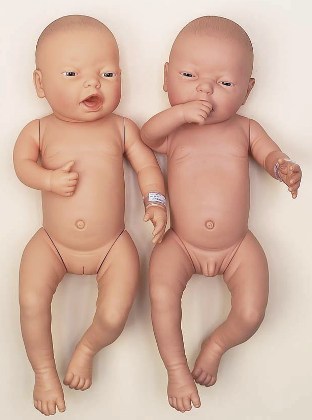
|
|
A theory of the
mind
Freud divided the structure of the mind into three parts, which he calls the id, the ego and the super-ego.
The id is the part of the personality that "contains everything that is inherited, that is present at birth ... the instincts" (Freud 1938 par.1.3). Laura Leland writes: "The demands of the id are almost primitive in their simplicity ... a newborn baby ... only wants to feel warm and well fed. He wants to be comforted and satisfied by his mother's breast, with the pleasurable ... feelings ... this brings. |

|
The baby wants all this satisfaction immediately and cries until he gets it... The id demands instant gratification."
The ego
The baby eventually works out that gratification is not always immediate and when this happens the ego comes into being. The ego "acts as an intermediary between the id and the external world" (Freud 1938 par.1.4).
It is a development of the id that stops the urges that might hurt it (like taking hold of something hot). It allows the id to seek pleasure whilst avoiding pain. The ego is governed by the `reality principle'.
The super-ego develops as a result of the child going through the Oedipus complex
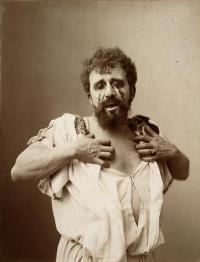
Picture source |
Freud used a
Greek mythological story of Oedipus to illustrate his ideas
of the `love triangle' that exists in early childhood.
In this story Oedipus puts out his own eyes in pangs of guilt at having inadvertently killed his father and married his own mother. The blinding reminds us that all this activity is blocked out of our memory. According to Freud, the boy child is so in love with his mother that he becomes jealous of his father. This brings him into conflict with his father; his urge is to kill him and take his place. |
Boy's castration complex
During the
phallic phase, boys become aware that
they possess a penis. When they realise that touching it feels good, they
"manipulate it frequently"
and then find out that
"adults do not approve of this behaviour."
(Freud 1924 par.5)
| The boy's mother threatens him that if he plays with his wee-wee his father will cut it of. Freud argues that this threat of castration makes sense to the boy because he sees that his sister has not got a wee-wee. On seeing a naked girl, "the loss of his own penis becomes imaginable, and the threat of castration takes its deferred effect." (Freud 1924 par.7) |

|
Freud connects childhood masturbation to an expression of mother love. Symbolically, possibility that his father will dismember him represents a love conflict with his father of possession of his mother. Because he has a "narcissistic interest in that part of his body ... the child's ego turns away from the Oedipus complex." (Freud 1924 par.8)
The unconscious resolution of the conflict with his father results in the development of the super-ego. It is the result of the child internalising the parental authority figure, in this case the father, as part of himself.

Picture source |
"The super-ego is in fact the heir to the Oedipus complex and
is only established after that complex has been disposed of."
(Freud 1938 par.9.2b).
It is affected by parental influence, which includes "not only the personalities of the actual parents but also the family, racial and national traditions handed on through them." (Freud 1938 par.1.7b). |
daddy's girlfriend
In his
essay
The Dissolution of the Oedipus Complex (Freud 1924),
Freud writes that girls too, develop an Oedipus complex, though it is of a
much simpler variety than that which boys experience. He writes that
Freud maintains that a girl's Oedipus
complex
Freud writes that the wish to possess a penis and the wish to bear a child
Girl's castration complex
When
comparing her genitals to those of her brother, a little girl thinks that
she has been badly done by and feels inferior to him. She assumes that she
once possessed a penis and then `lost it by castration'. Freud says that
this is an essential difference between the sexes, because
"it seldom goes beyond the taking of her mother's place and the adopting of
a feminine attitude towards her father."
(Freud 1924 par.13)
"culminates in a desire ... to receive a baby from her father as a gift -
to bear him a child."
(Freud 1924 par.13)
"remain strongly cathected in the unconscious and help to prepare the
female creature for her later sexual role."
(Freud 1924 par.13)
"the girl accepts castration as an accomplished fact, whereas the boy fears
the possibility of its occurrence."
(Freud 1924 par.12b)

|
Gender is just one of those things that
Crona
does not know how to deal with.
"But I've never seen a guy with a screw sticking out of his head before! I don't know how I'm supposed to deal with a guy like that." Crona, Episode 8 |
De Beauvoir:
If the little girl were brought up from the first with the same
demands and rewards, the same severity and the same freedom, as her
brothers, taking part in the same studies, the same games, promised the
same future, surrounded with women and men who seemed to her undoubted
equals, the meanings of the
castration complex and of the
Oedipus complex
would be profoundly modified.
Assuming on the same basis as the father the
material and moral responsibility of the couple, the mother would enjoy the
same lasting prestige; the child would perceive around her an androgynous
world and not a masculine world.
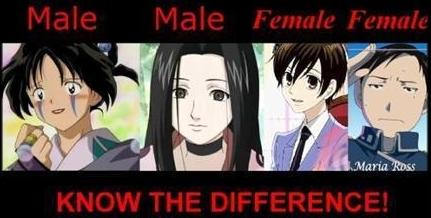
|
Androgyny is both man and woman
andro (man) gyny (woman) |
Were she emotionally more attracted to her father - which is not even sure - her love for him would be tinged with a will to emulation and not a feeling of powerlessness; she would not be oriented toward passivity.
Authorized to test her powers in work and sports, competing actively with the boys, she would not find the absence of the penis - compensated by the promise of a child - enough to give rise to an inferiority complex;
correlatively, the boy would not have a superiority complex if it were not instilled into him and if he looked up to women with as much respect as to men.
The little girl would not seek sterile compensation in narcissism and dreaming, she would not take her fate for granted; she would be interested in what she was doing, she would throw herself without reserve into undertakings.
1936 First presentation of the theory of the "mirror stage" at the
International Psychoanalytic Association (IPA) conference at Marienbad
1949
De Beauvoir on
Lacan's mirror stage theory.
The child
"is separated more or
less brutally from the nourishing body.... the separation is accomplished,
toward the
age of six months... in carnal form he discovers finiteness, solitude,
forlorn desertion in a strange world.
"He endeavours to compensate for this
catastrophe by projecting his existence into an image, the reality and
value of which others will establish.
26.4.1931: Death of George
Herbert Mead.
1934:
Mind, Self and
Society, from
the Standpoint of a Social Behaviourist
"He is already an autonomous subject, in transcendence toward the outer world; but he encounters himself only in a projected form."
|
Timeline
See 1909: Charles Horton Cooley on the looking glass self and (later) George Herbert Mead on children playing roles. Also consider some of the meanings of reflection |

|
Engels 1884
Towards the end of his life, Marx became interested in the
anthropological reports of
Lewis Henry Morgan
(1818-1881). Morgan
argued that human society has three inter-related spheres:
Something
happening in one sphere would have repercussions for something
happening in
another.
When Marx died, Engels inherited his manuscripts, including
his
notes on Morgan. Engels developed Marx's notes on historical
materialism
and the family into a book
The Origin of the Family, Private Property and the
State
in
1884.
De Beauvoir
In 1949 Simone De Beauvoir started
The Second Sex
by analysing
biological, psychoanalytic (Freudian) and historical
materialist (Engels)
perspectives on women, and argues that they are partial.
From her existentialist view, biology, sex and economics cannot
determine a woman's destiny
but we shall hold that the body, the sexual life,
and the
resources of technology exist concretely for [a human being]
only in so far
as he [or she] grasps them in the total perspective of his [or
her]
existence."
An existential perspective is one in which a human being grasps
(understands, takes hold of) issues in the total perspective of his [or
her] existence.
Simone De Beauvoir argues that we explore the world in different bodies,
but
the natural differences do not mean that our worlds are very different -
society builds difference around relatively insignificant biological
differences
Judith Butler does not dispute any of that, but she asks to what extent
our bodies are natural?
Butler argues that
Performativity is a pronouncement of what we will perform. Society does
the pronouncing
Judith Butler asks:
1951 - published 2008
au naturel
to the natural (nature)
in a natural state : without anything added
We are born naked, but this picture of Simone De Beauvoir naked was
considered scandalous.
Is this a body as nature gives it? Or is it a body seen through the eyes of
society (culture)? Is it shaped by society?
Is this a presentation?
Is this a performance?
Is this
performativity (a role that society
prescribes)?
Think about this quotation:
This divides bodies (not minds) "naturally" into male and female.
Sociologists often argue that the natural difference between male and
female should be called sex and the cultural difference should be
called gender
But if Simone De Beauvoir's body is engaged in a performance, and if that
performance is prescribed by society, perhaps sex, for human beings, is
also a (gender) role?
How "natural" is photography?
Sometime between
1877
and
1893
the old nurse posed with her teenage charge
for a photograph by the new electric light
The teenagers name is
Charlotte Mew, from which you can work out that you should say
she and her.
But Charlotte thought (outrageous child) that she could imagine and write
as she liked, and so in her poetry she is sometimes him and sometimes her.
Sex and gender are
identity problems -
Modern mythology is creating new role models for us - which may pre-figure
the future
Gender is just one of those things that
Crona
does not know how to deal with.
Andrew Roberts likes to hear from users:
"In our attempt to discover woman we shall not reject
certain contributions of biology, of psychoanalysis, and of
historical
materialism;
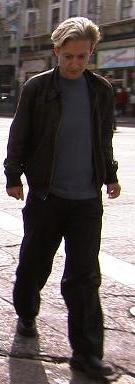
Judith Butler in 2008
Judith Butler
"there is no recourse to a
body that has not always already
been interpreted by
cultural meanings; hence, sex could not qualify as a
pre
discursive anatomical facticity. Indeed,
sex, by definition, will be
shown to have been
gender all
along". (Butler,
1990 p.8).
Bodies are performative:
"I pronounce you different bodies"
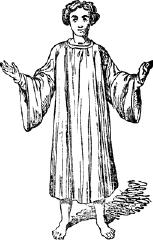
says society
Language is performative if the saying of something does the deed. If the
authorised person says "I pronounce you man and wife" in the right
circumstances, the two people it is said to become man and wife
"Is there a way to link the question of the
materiality of the
body to the
performativity
of
gender? And how does the category of
"sex" figure within
such a relationship?"
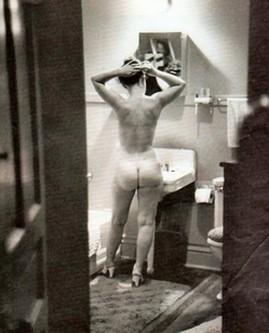
The
materiality of the
body
"No male philosopher I can think of would have had such a
lovely bottom. Mme de Beauvoir had a brilliant mind. She also had a
wonderful body. Women win on both counts." (Florence Montreynaud
2008)
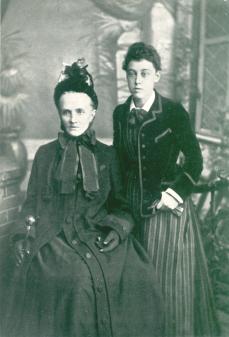
Another photograph

Crona (Kurona meaning "Dark One") is a character in modern
mythology (see
manga). Crona is
a Demon Sword Master whose weapon, Ragnarok, resides permanently within
his/her blood. Crona is presented with an
ambiguous gender throughout the entire series and while there have been
hints toward Crona's sex in both directions, nothing definitive has been
presented.
 Top of
Page
Top of
Page
 Click coloured words to go where you want
Click coloured words to go where you want
To contact him, please
use the Communication
Form

Headings
1949 marxism and psychoanalysis
Determination and self- determination
society and action
individual and society
19th century socialist feminism
Engels 1847: marriage and family
